“We made the decision to relocate to Hsihseng with our children’s education in mind. If they are in the jungle, they won’t be able to properly learn,” explained Sai Aung.
Sai Aung family had been internally displaced, seeking refuge in the jungle to escape the violent clashes between the SAC regime and the People’s Defense Forces.
Escaping from Paikhun (aka Pekon), a region deeply affected by the ongoing conflict, Sai Aung’s family after hiding in the jungle briefly, prioritized education and safety, leading them to move to Hsihseng township.
With a 6-year-old son and a 3-year-old daughter, the family is deeply concerned about their children’s education amid the prevailing armed conflict and instability.
Sai Aung emphasized, “We are not concerned about ourselves, as we are adults. But for the children, they still have a future, and they were unable to properly study this year. Therefore, in order for them to enroll in school next year, we had to move here.”
Following the military coup in 2021, Paikhun town experienced intense armed clashes between the SAC regime and the PDF.
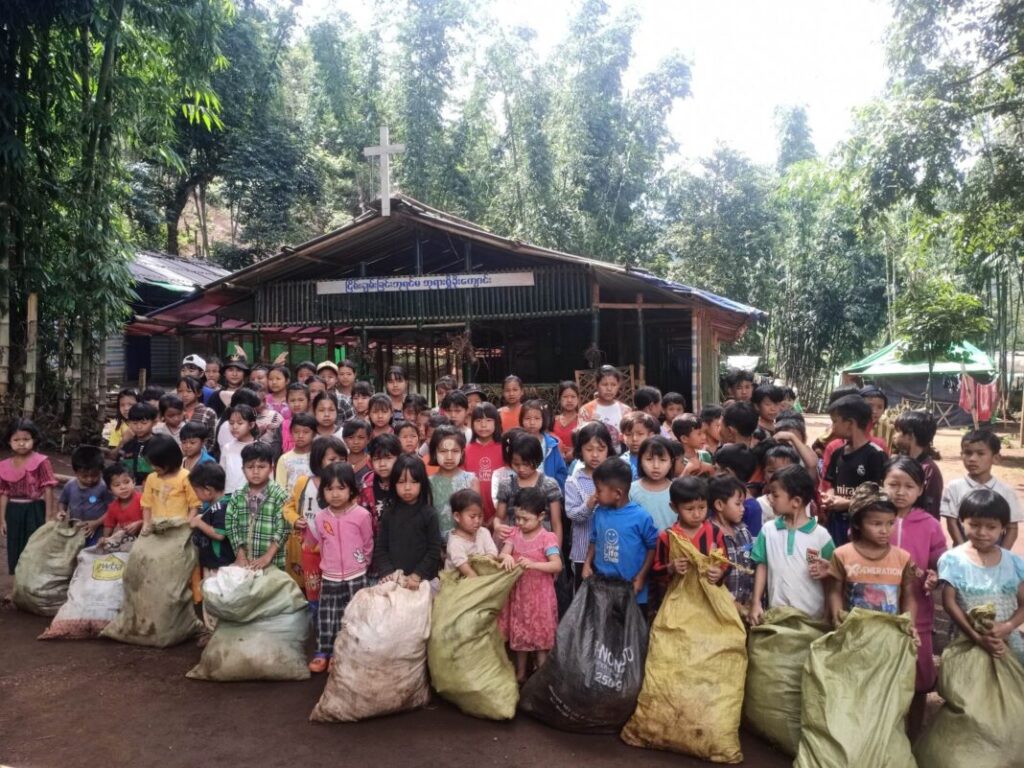
Tens of thousands of people have had to leave their homes due to armed conflict, including Sai Aung’s family, who were forced to flee and hide in the forest.
After enduring an extended period of hiding in the forest, the displaced people began facing challenges related to health, food, and most importantly, the education prospects for their children. The children faced the risk of not being able to complete their education.
“Children keep growing up year after year. Remaining in the jungle would make things even more difficult. It is hard to find food, and our children are not able to learn properly. Sometimes, military jets would fly over the area. In moments like that, people have to flee and seek a safer place again,” said Sai Aung.
While families were in the jungle, mobile schools operated by teachers and educational staff participating in the Civil Disobedience Movement (CDM) provided education for the children. However, due to the risk of attacks or shelling, parents grew increasingly concerned about their children’s safety.
“We once sent our children to the classes run by CDM. However, there were incidents of heavy shillings near the schools. Fortunately, the shells did not hit the schools. This incident happened twice. Although we, as adults, knew how to avoid or stay safe in such situations, the children wouldn’t know what to do,” remarked Sai Aung sadly.
A teacher responsible for instructing relocated children shared concerns about both teaching and safety. The SAC regime has been targeting schools, launching shells in the vicinity.
“We have witnessed shelling of schools, right before our eyes. This experience has filled us with fear and concerns. It’s getting really hard to keep up our classes and teach the children. I feel a deep sense of frustration when I think about the future of these children who have lost the opportunity to study”, the teacher expressed the frustration and concern.
Given the future of students in the face of the brutal and oppressive activities of the SAC government, the teacher expressed that feelings of distaste for the dictatorship had become stronger.
“We are profoundly troubled by their inhumane actions, especially those directed towards children and schools. I can never understand their motives. This sense of discontent and dislike further fuels my determination to devote my life to teaching children and guiding them toward becoming educated individuals,” declared the teacher.
The teacher emphasized that the SAC regime is also jeopardizing the future of children in ethnic areas.
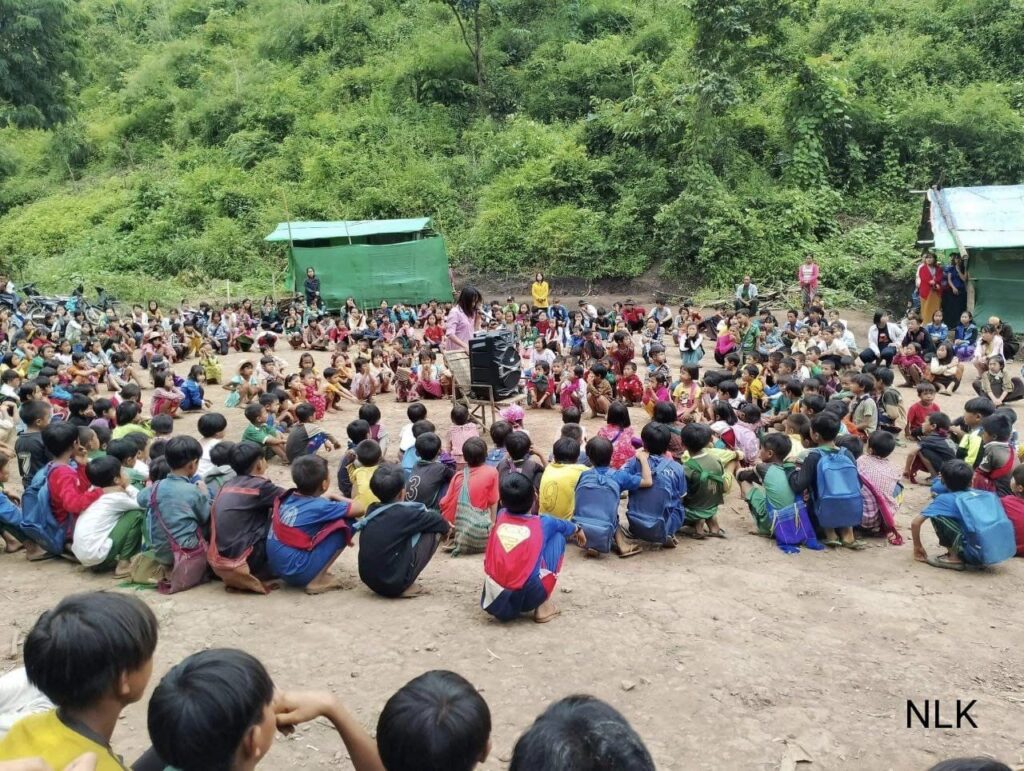
According to the Declaration of Human Rights adopted on 10 December 1948 by the United Nations, “Everyone has the right to access to education, which shall be free, especially in the elementary and fundamental stages.”
The declaration also mandates that member states have the responsibility to uphold and disseminate this right among their citizens, schools, and various organizations working on education issues across the countries.
Everyone needs to pay attention to the issue of education and contribute as much as they can. If children’s education is not prioritized, as the revolution continues, the number of children who do not receive proper education will increase, emphasized by those supporting the internally displaced persons.
Despite the necessity of leaving their unstable native area for the sake of their children’s education, Sai Aung family faces new challenges in their more stable environment. Sai Aung is contemplating returning to his place of origin to work on farmland or cultivation, as he continues to struggle for livelihood in the new place.
“We have only been here for a little more than a week. We will send our children to the school here, but we plan to return to our places of origin to work on the farm. This is the cultivation season, so we will go and work on our farm there,” stated Sai Aung.
However, there are risks for people like Sai Aung who decide to return and work on farmlands in conflict-affected areas. Just last August, a couple who went to their places of origin in Paikhun to work on the farmland were shot and killed by the SAC regime. Additionally, there are landmines, making it unsafe for people to work in the farmland.
While livelihood is a priority, there are also worries and concerns for Sai Aung.
It has been over one year since Paikhun has been affected by intense armed conflict between SAC and PDF.
In the Shan-Karenni border area, ongoing armed clashes and tension persist up to the present day.
Over the past year and a half, since SAC has incurred major losses, the regime has increasingly utilized fighter jets and heavy weapons, indiscriminately shelling into the area, according to a member of the 1002 PDF.
The PDF member explained, “The more intense the fighting gets, the more losses the regime suffers. Consequently, they increasingly rely on heavy weapons. Also, due to the depletion of human resources, their dependence on weapons grows. They also resort to using fighter jets and planes, dropping bombs and shelling.”
Even in Paikhun town, the SAC regime occasionally deploys heavy weapons from their bases, resulting in random shelling in residential areas. This has led to casualties among the residents and destruction of houses.
“Fightings have never ceased, but skirmishes continue. Sometimes even heavy weapons shelling is involved. The frequency of these clashes has reduced compared to before. Nowadays, most clashes occur in the Moe Bye area,” stated a 45-year-old local from Paikhun town.
From February 2021 up to 31st August 2023, there have been around 800 clashes in Karenni and Paikhun, Shan State, according to a statement issued on 1st September by Progressive Karenni People Force (PKPF).
Moreover, in 2023 alone, the SAC regime has used planes or fighter jets for attacks or shelling at least 435 times, as mentioned in the statement.
According to the General Secretary of the Karenni State Interim Executive Council (IEC), Banya Khun Aung, two schools were completely destroyed due to attacks by fighter jets, and more than 10 schools are no longer able to function.
In order for children to continue their education, schools are being established. However, due to the risk of attacks by fighter jets or planes, ensuring security in the operational and newly established schools is a top priority, emphasized Banya Khun Aung.
“Now, we have a plan to enable children to attend school in various ways, rather than gathering in one place. We are also working on establishing schools in local areas to enhance safety and accessibility in our new projects and plans. It’s crucial for the children to enjoy going to school, and we are ensuring that parents feel confident sending their children back to school,” stated Banya Khun Aung to the Shan Herald Agency for News.
Sai Aung expressed his contentment with his children learning basic education and becoming good individuals, regardless of the education system.
He stated, “As long as my children grow into good people, knowing how to distinguish between right and wrong, that is enough for me. I believe it doesn’t matter what kind of education system it is; as long as it is education, it is beneficial. Our priority now is to send our children to a safer place,” highlighting his concern and opinion on the matter.
Currently, there are over 40,000 children and students in the area under the control of the Karenni State Interim Executive Council (IEC).
To ensure these children and students can continue their education, they require teaching materials and human resources, such as teachers, emphasized Banya Khun Aung.
The education of displaced and relocated children continues to face challenges amid the intensified armed conflict situation. Families like Sai Aung’s continue to be troubled by the thought of not being able to provide their children with even basic education.





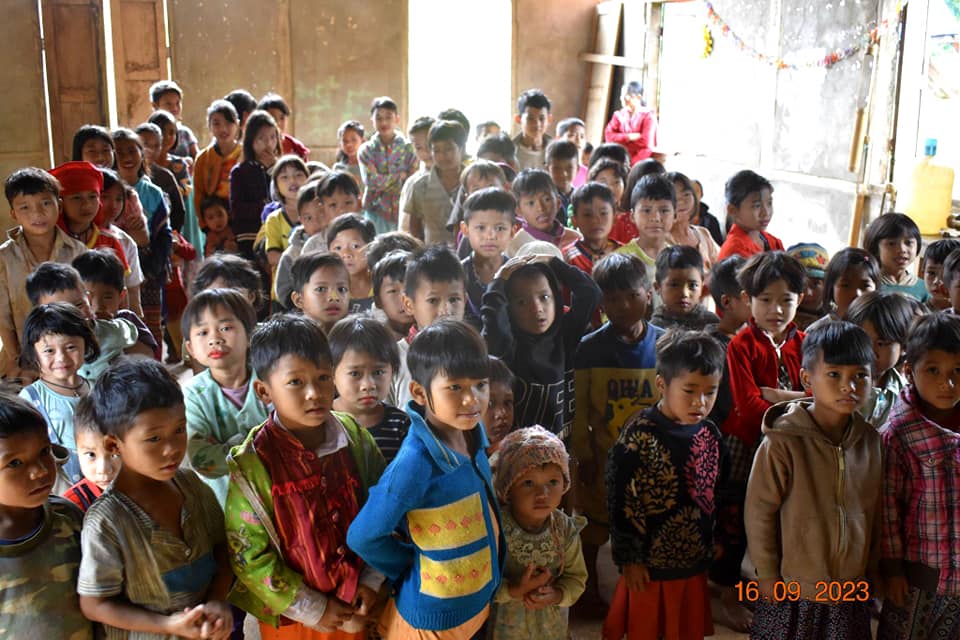
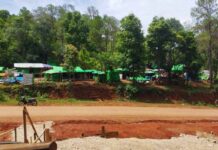
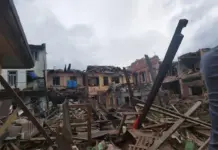
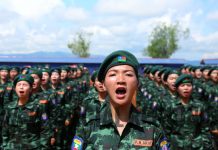
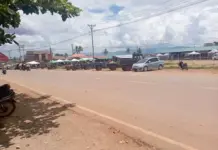
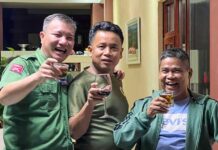






Leave a Comments